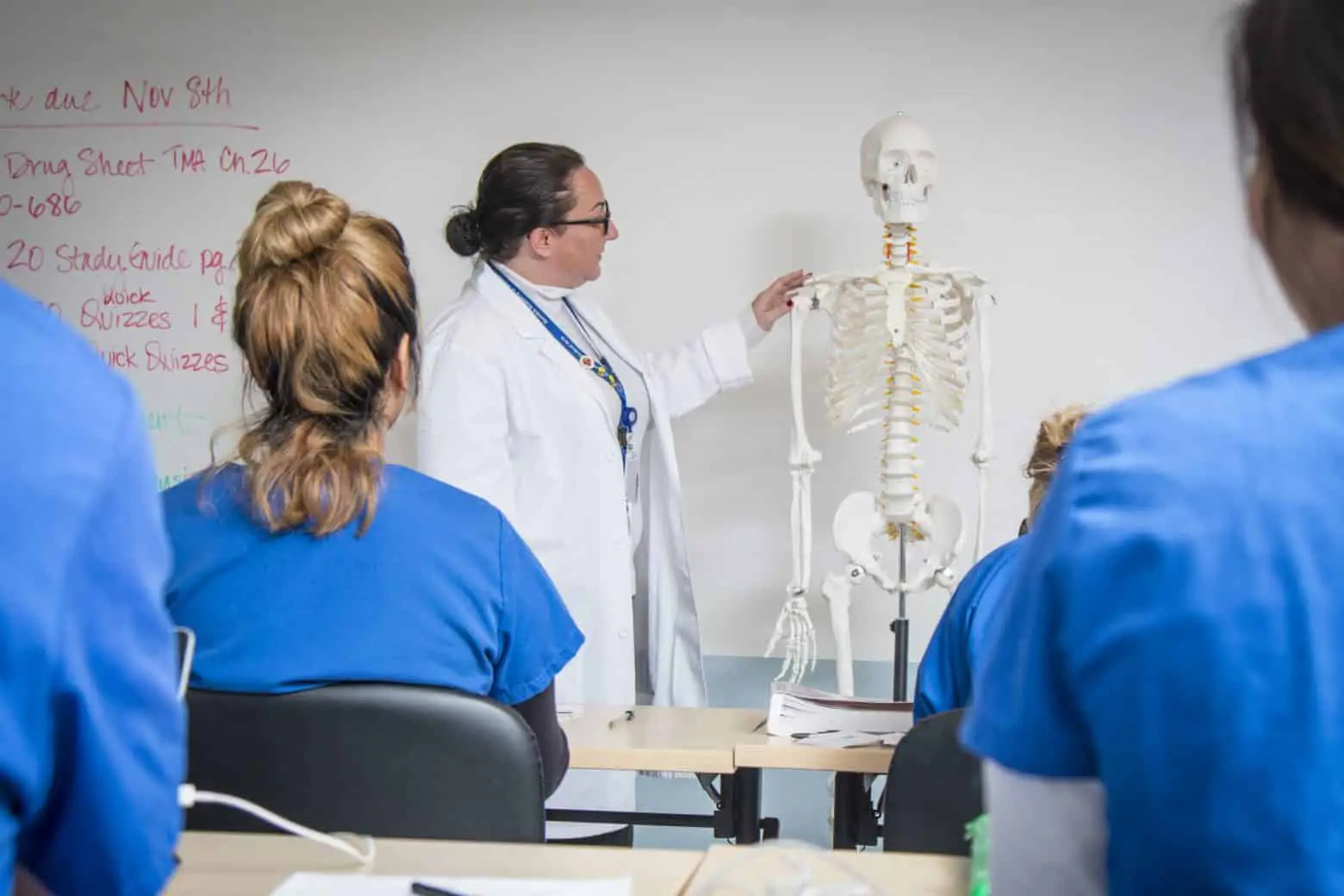Make a Career Through Registered Nursing Programs
Date: October 13, 2022
Perhaps you’ve heard the famous joke, “Be nice to your nurses; they keep doctors from hurting you.”* With no offense to medical doctors, the wisecrack may speak, tongue-in-cheek, to the responsibilities which fall on the primary healthcare staff—the shoulders of Registered Nurses. Besides banter, the joke may also reference how much Registered Nurses affect our healthcare system.
Caring and Beyond
Beyond just caring for the sick and injured, Registered Nurses (RNs) play significant roles in our communities. Markedly Registered Nurses promote healthy lifestyles and serve as educators for individuals, families, patients, and whole institutions.
Significantly, they are contenders in the workforce. “Registered Nursing was by far the largest occupation in hospitals in May 2019, with over 1.8 million jobs.” In essence, this is 30 percent of total hospital employment.1 Some have gone so far as to say Registered Nurses are the backbone of our healthcare system.
Pathways to an RN
What training then goes into a role of such gravity? Generally, one becomes a Registered Nurse in one of three ways. Standard RN pathways include diploma, associate’s, or bachelor’s programs from approved nursing programs.2 Additionally, Registered Nurses hold licensure by examination. Hence, they must take the National Council Licensure Examination (NCLEX-RN®) to be licensed.3
Beyond educational programs, there is also an array of career opportunities open to gain experience—even some hospital-based diploma programs.
Rigors of the Role
By and large, an excellent Registered Nursing program equips one to handle the job’s rigors. Expressly nursing challenges include planning, assessing, evaluating, implementing, and co-coordinating total patient care. Future nurses must also possess an eclectic acumen representing assorted soft and hard skills. Solid nursing education includes behavioral science, anatomy, chemistry, nutrition, psychology, and related disciplines.
By far, the best way to commence a solid nursing career is to find an exceptional academic training program teaching holistically to the total needs of the soon-to-be nurse. At a minimum, verify your future program is accredited. Then visit your prospective campus. Above all, list the traits you want to achieve in your nursing profession. Finally, check those traits against the program’s core objectives.
Make a Career Through RN Programs
Today’s RNs run departments, oversee wings, coordinate triage, and maintain clinics. Further, the educational base forming an RN vocation can be a springboard for advanced education. Specializations extending from a Registered Nurse program are multiple. Nurses may add to their base education by aiming in other directions of more advanced care. Often requiring further education, these options include work as:
- Critical Care Nurse;
- Occupational Health Nurse;
- Informatics Nurse;
- Certified Nurse Midwife;
- Travel Nurse;
- Family Nurse Practitioner;
- Public Health Nurse;
- Geriatric and Continuing Care Nurse;
- Oncology Nurse;
- Legal Nurse Consultant;
- Certified Registered Nurse Anesthetist.4

All in All
Whether you aim to be a teaching nurse, a bedside care person, a nurse practitioner or run the globe as a humanitarian caregiver, experience and education are the critical components of a career as a Registered Nurse.† While absolute dedication and patience are vocational assets in this caring vocation.
Seize your best opportunity for career development, and check out Gurnick Academy of Medical Arts’ array of nursing programs today.
* We mean no disrespect to medical doctors.
† A good resource for keeping up with the nursing profession is the American Society of Registered Nurses (ASRN).
Citations
1 Bureau of Labor Statistics, US Department of Labor, The Economics Daily, Registered Nurses Made Up 30 Percent of Hospital Employment in May 2019. (Accessed October 13, 2022).
2 Bureau of Labor Statistics, US Department of Labor, Occupational Outlook Handbook, Registered Nurses. (Accessed September 8, 2022).
3 “Licensure by Examination.” Ca.gov, California Board of Registered Nursing, 2022. (Accessed October 13, 2022).
4 Dugan, RN, BSN, Jody. “11 Job Options for Registered Nurses | NurseJournal.org.” Nursejournal.org, Nurse Journal. August 29, 2022. (Accessed October 13, 2022).


